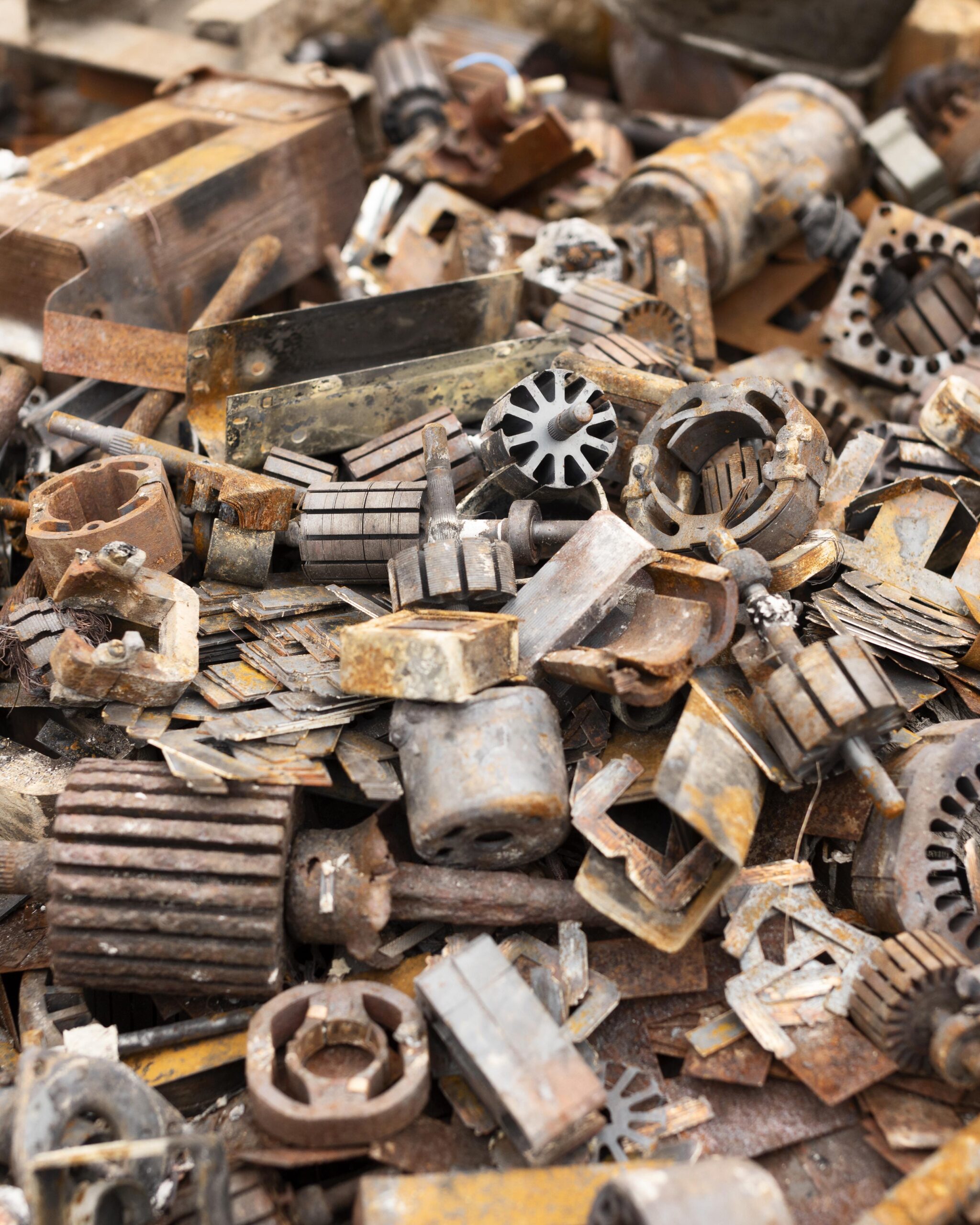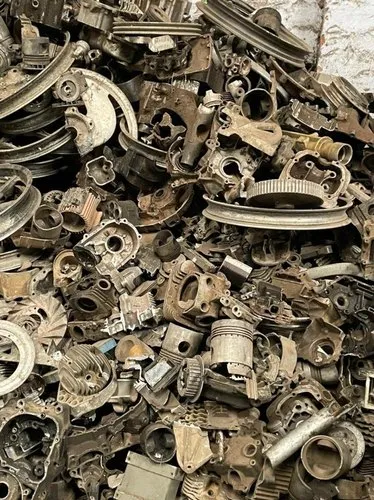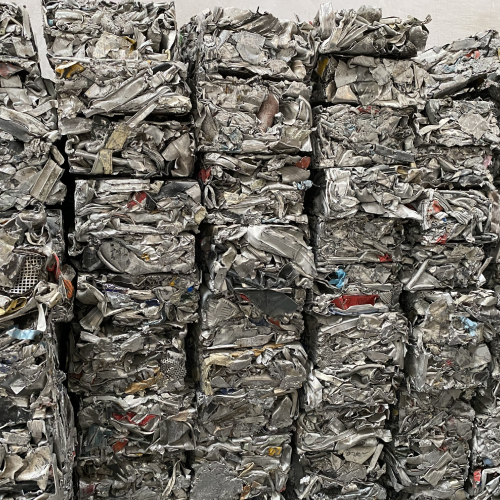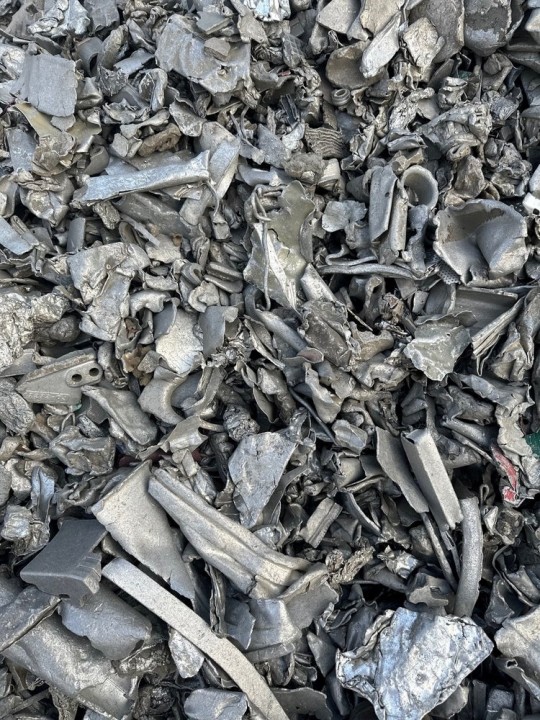
Using clean aluminium scrap is essential for producing high-quality secondary aluminium ingots. Clean scrap refers to material that is free from contaminants, such as paint, oil, plastic, dirt, and other metals. This type of scrap melts more efficiently and ensures uniform alloy composition, leading to:
Better ingot quality
Fewer impurities and inclusions
Minimal gas porosity or casting defects
Improved mechanical properties
Industries prefer clean scrap sources like Tense (cast aluminium), Taint/Tabor (sheet scrap), and Tread (wheel scrap) for making premium-grade ingots used in automotive, aerospace, and industrial applications.
Using dirty aluminium scrap in ingot production can lead to serious quality issues. Dirty scrap refers to aluminium contaminated with oil, grease, paint, plastic, moisture, or mixed metals. When such scrap is melted, it introduces impurities and gases into the molten metal, resulting in:
Porosity
Gas holes
Weak structural integrity
Casting defects
Reduced surface finish
These defects compromise the mechanical strength and appearance of the final aluminium ingots, making them unsuitable for critical applications like automotive or aerospace use.
Common low-grade scrap types like Zorba and Twitch often fall into this category unless thoroughly cleaned and sorted. While they may seem cost-effective, they require extensive processing and can result in higher rejection rates.


When it comes to producing premium secondary aluminium ingots, selecting the right scrap is crucial. Tense, Taint/Tabor, and Tread are widely recognized as high-quality aluminium scrap types that deliver excellent results in terms of alloy purity, melt efficiency, and finished product performance.
Composed of clean, old cast aluminium parts such as engine blocks and machinery housings, Tense scrap is perfect for making ADC12, A356, and other high-grade casting alloys.
Made up of uncoated, uncontaminated aluminium sheets and siding, Taint/Tabor scrap is a reliable source for high-purity aluminium ingots, ideal for extrusion and rolling applications.
This scrap includes clean, used aluminium alloy wheels commonly sourced from automobiles. It’s ideal for producing automotive-grade aluminium ingots due to its consistent alloy structure and strength.
These scrap types are preferred by manufacturers looking for clean, consistent, and low-contamination feedstock, ensuring higher-quality ingots with minimal processing.
Zorba and Twitch are popular aluminium scrap types known for their affordability, but they come with a trade-off — extensive sorting and processing are required before they can be used in ingot manufacturing.
Zorba is a mix of shredded non-ferrous metals such as aluminium, copper, zinc, and stainless steel, usually recovered from automotive and appliance recycling. While aluminium makes up a significant portion, it’s often contaminated and must be separated using advanced sorting systems like eddy current separators and sensor-based sorting.
Twitch is the cleaned and aluminium-rich portion of Zorba. It is more refined but may still carry traces of other materials and coatings. Further processing is often needed to achieve the quality required for ingot production.
Though cheaper than clean scrap like Tense or Taint/Tabor, Zorba and Twitch increase labor, time, and equipment costs due to high levels of contamination. Improperly sorted scrap can lead to porosity, gas holes, and alloy inconsistency in the final ingot.
